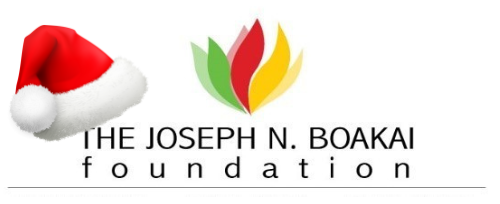The JNB Foundation’s deputy executive director, Mr. Henry Saah Flanpor, Thursday, visited the Restoring Hope Foundation Orphanage in Bentol, about 20 miles outside of the capital, Monrovia, with the hope of evaluating the center’s needs and providing some assistance to the home through his foundation.
Restoring Hope Foundation Orphanage, like most others in the country, runs a nursery school up to K-1 for children ages 3 through 11 year-old; its enrollment is up to 160 students, with half of this number as orphans who live in a modest three-bedroom house, situated along the dirt road that leads from Monrovia to Bentol, which until the civil war was a city but now sits in bushes.
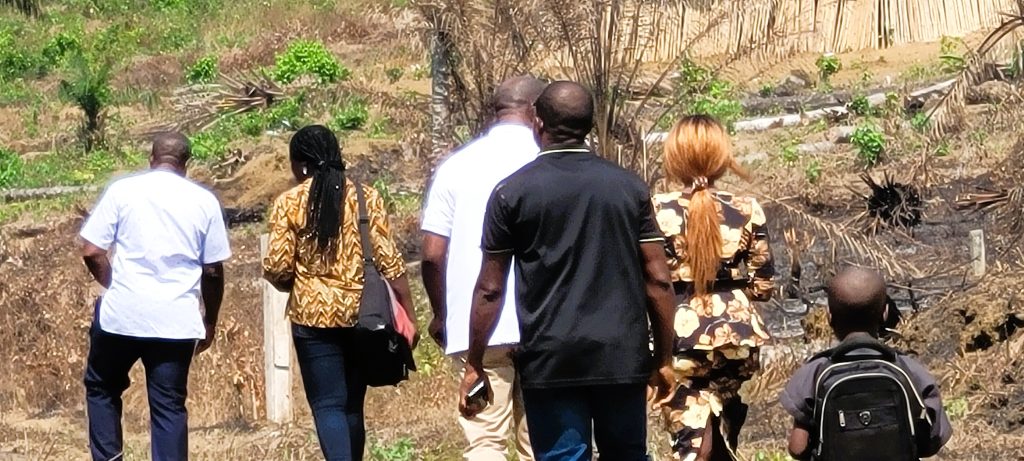
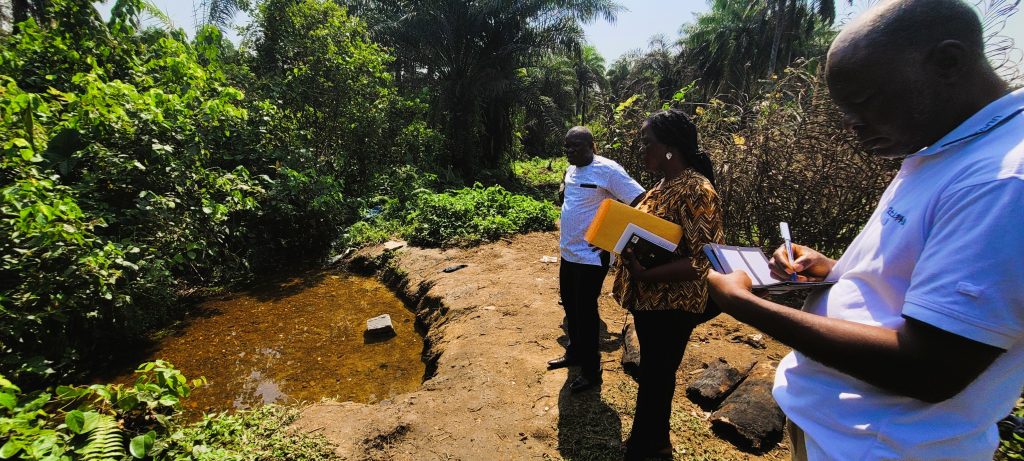
The other half of the students population, 80, all live with their parents within the vicinity of Kollie-Man Town, while they attend the Hope Foundation School. Because most parents here are farmers/gardeners, and face hardship, unable to provide proper daily meals for their kids, the school is forced to host all (after school) and only turn them over to parents at 5:00 PM after supper.
Established May 2023, Mrs. Aminata M.P. Paye, owner of the school/orphanage, and a University of Liberia chemistry grad, says she has 4 teachers and a cook that help her run the center for 9-10 hours the kids are at school and thereafter, doing after-school programs. And there are 4 friendly dogs, too, all serving as therapeutic animals and helping the kids and their teachers get by each day.
The nearest public school away from Kollie-Man’s Town is miles and miles away, and although Aminata may have succeeded in filling a void in the educational system she seems so passionate about, in this community, yet, costs for this undertaking remain financially astronomical, with no available resources or support from any source so far.
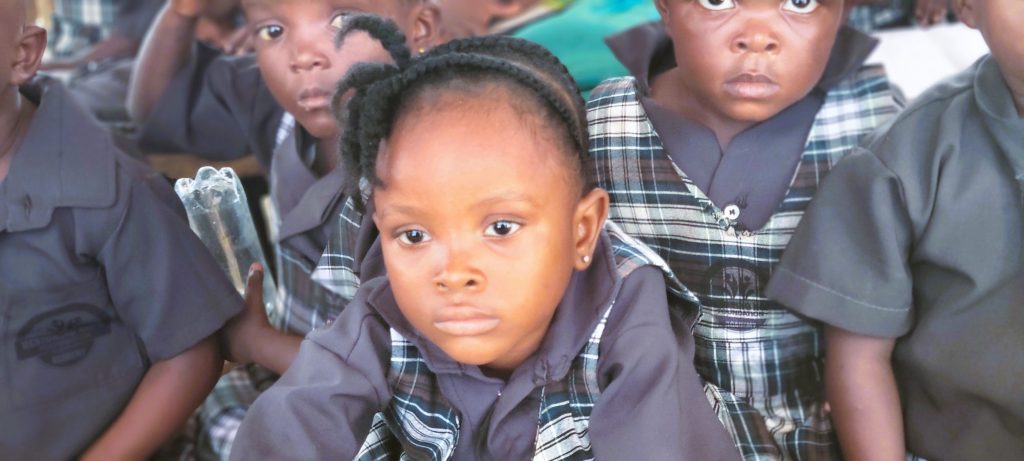
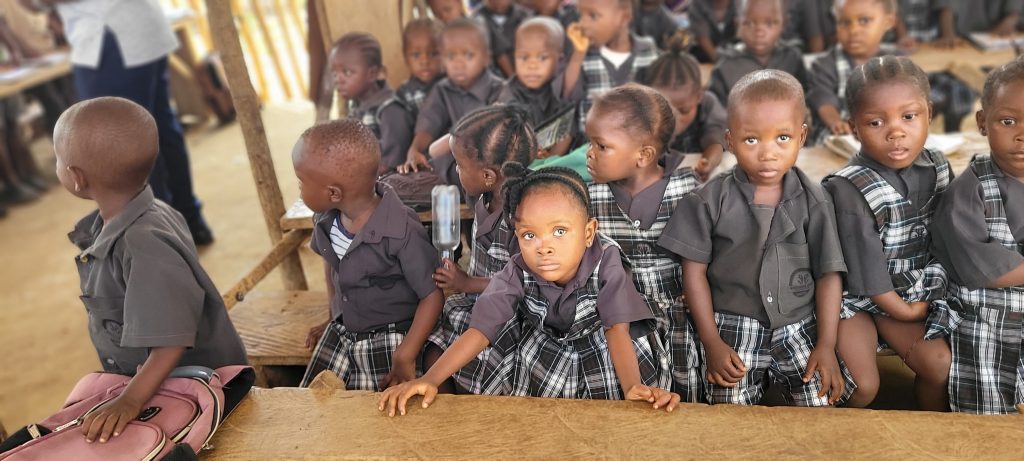
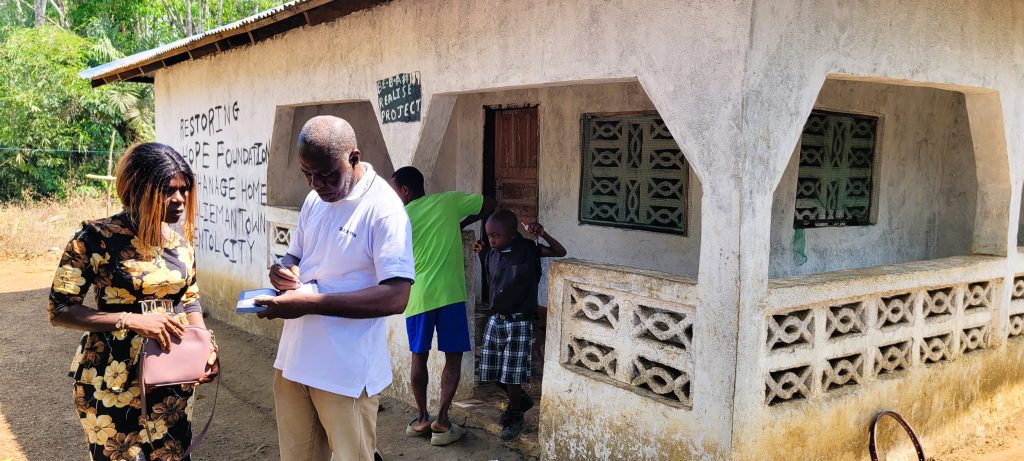
During our assessment trip last Thursday, kids sat under a makeshift small shelter made of reefs, and in the distance stood a temporary restroom built of palm branches at least for their own convenience. The new campus land, situated on a hillside, sits in a palm grove covering 1 ½ acres of land, half of the 3 acres Aminata had bought for this purpose.
There’s no good drinking water available nearby, so students and their teachers have to walk downhill daily, about a quarter-mile east to collect drinking water from a small creek which looks quite like a pond that nearby gardeners/farmers now use to do laundry.
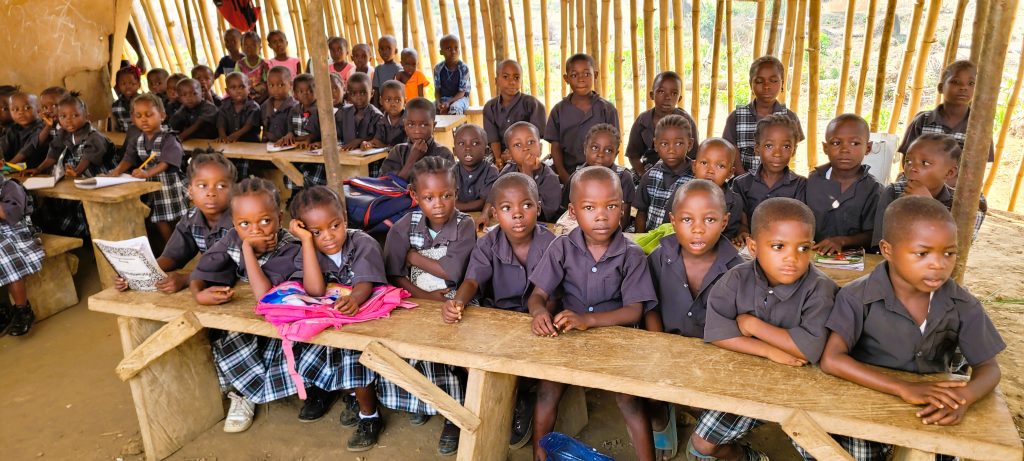
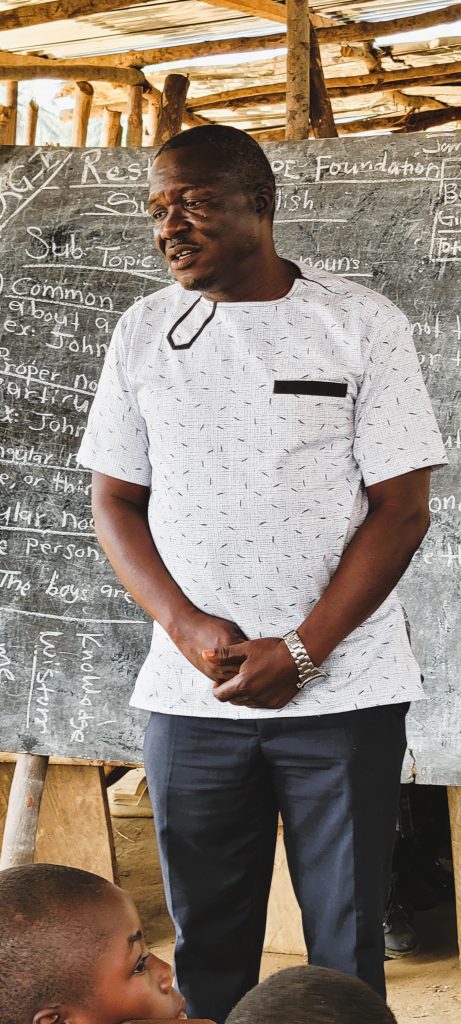
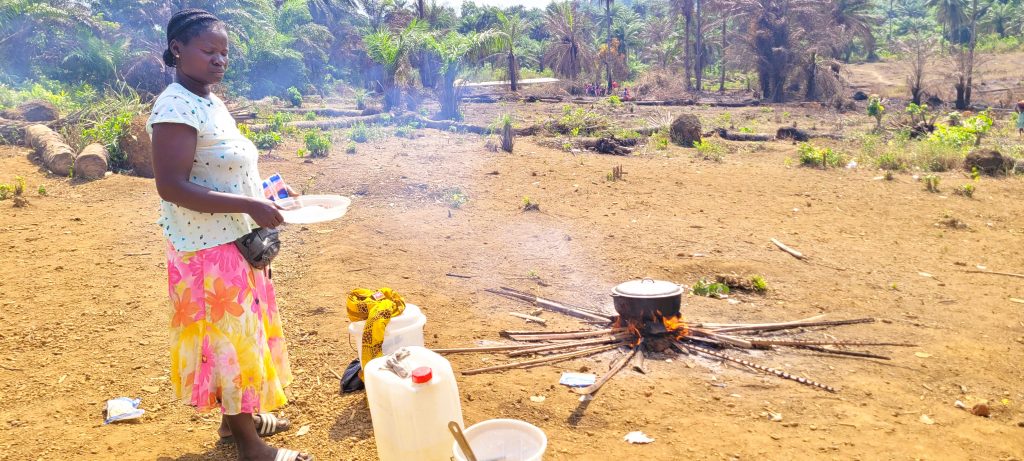
The current rented house that shelters the 80 orphans isn’t in appreciable condition as the floors and walls for instance, appeared terrible, its single toilet bowl broken, making it difficult for the kids to use it. The windows and doors aren’t in good shape either and a designer’s bricks, although Aminata’s landlord collects US $100.00 monthly for use of the building.
Though Aminata has set her eyes on building a better future facility (orphanage, school and kids’ activity center) to move the kids, yet she’s pleading with JNB Foundation and humanitarian groups here and abroad to assist her center with food, clothings and rent money in order to keep it functional before the rainy season arrives;
Text & Photographs by James Kokulo Fasuekoi/JNB-F Communications Director.
